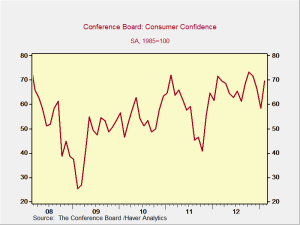As I wrote after Cyprus, I moved from a not-at-all-certain belief that the euro would make it, for political reasons, to a just-as-uncertain suspicion that it would not (also for political reasons). Recent events continue to widen the gap between the “make it” and “not make it” conclusions.
When Greece first defaulted, the narrative was all about irresponsible Greek borrowing, with the clear implication that they had it coming. News coverage focused on early retirement, state pensions at 50, and low tax compliance. In fact, when default hit, imports of necessary goods such as medicines also essentially stopped for most of the population. Very little of that made it into mainstream coverage.





